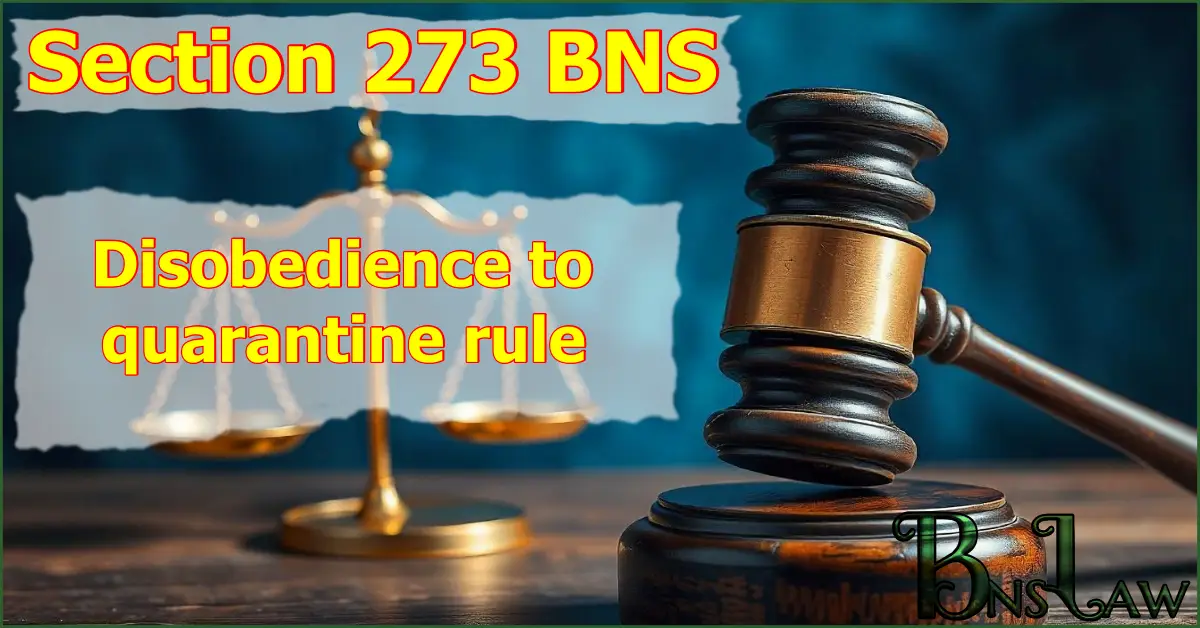Section 273 BNS | BNS 273
Whoever knowingly disobeys any rule made by the Government for putting any mode of transport into a state of quarantine, or for regulating the intercourse of any such transport in a state of quarantine or for regulating the intercourse between places where an infectious disease prevails and other places, shall be punished with imprisonment of either description for a term which may extend to six months, or with fine, or with both.
READ OTHER SECTIONS OF CHAPTER XV — OF OFFENCES AFFECTING THE PUBLIC HEALTH, SAFETY, CONVENIENCE, DECENCY AND MORALS
FAQs of BNS Section 273
-
273 BNS punishment and fine
Punishment and fine under Section 273 of the BNS: Imprisonment for 6 months, or fine, or both.
-
273 BNS cognizable or not
The offence under Section 273 of the BNS is non-cognizable.
-
273 BNS bailable or not
The offence under Section 273 of the BNS is bailable.
-
273 BNS trial court
Offence specified in Section 273 of the BNS is triable by any Magistrate.
Important Points
- Cognizable Offences: These are offences where a police officer can arrest a person without a warrant.
- Non-Cognizable Offences: These are offences where a police officer cannot arrest a person without a warrant.
- Bailable Offences: These are offences where the accused can get bail from the police station itself. All bailable offences are listed in the First Schedule of the Bharatiya Nagarik Suraksha Sanhita (BNSS).
- Non-Bailable Offences: Offences in which bail is not granted directly from the police station but after hearing the case in the court, the judge decides when bail will be granted. All non-bailable offences are listed in the first schedule of the Bharatiya Nagarik Suraksha Sanhita (BNSS).
- In the above FAQ, “trial court” means the court that has jurisdiction to try the offence.
- In the above FAQ, the expression “Magistrate of the first class” and “Any Magistrate” does not include Executive Magistrates.
Read other Sections of the BNS
Reference Link: New Criminal Laws (BNS), Ministry of Home Affairs







